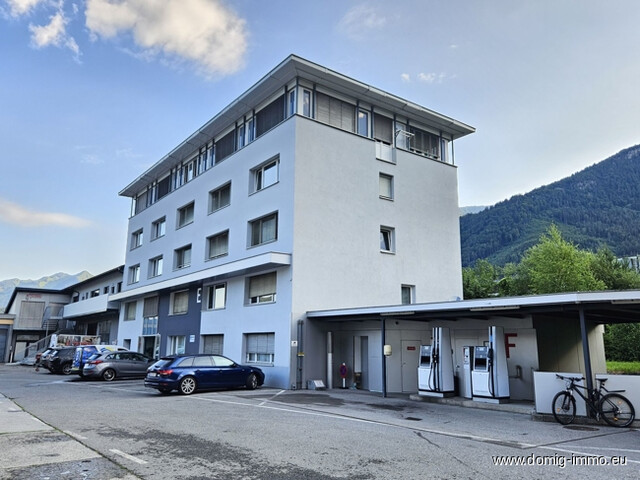Sharp Increase in Autumn: Covid-19 Remains Dangerous
"Similar to 2024, a significant increase in virus load has already been observed in wastewater monitoring this autumn. Almost a third of hospital admissions due to severe respiratory diseases were attributed to Covid-19 in recent weeks," said Markus Zeitlinger to the APA.
More Deaths from Covid-19 than from Influenza
The official SARI dashboard shows the development up to the 44th calendar week with complete data, then up to the 46th calendar week with mostly reported information clearly: In the 42nd calendar week (mid-October), 31 percent of hospitalizations due to severe respiratory diseases were caused by SARS-CoV-2. Influenza accounted for just 0.2 percent, pneumococci for 0.9 percent, and RSV for 0.1 percent. With complete information in the 43rd calendar week, Covid-19 was represented with a share of 27.6 percent, influenza with 0.9 percent (pneumococci: 2.3 percent). Most recently (46th calendar week; up to 16.11.), the share of Covid-19 (incomplete data) was 18.7 percent, that of influenza 2.3 percent, and pneumococci were responsible for 0.9 percent of these hospital admissions. SARS-CoV-2 surpassed and still surpasses influenza in terms of "disease burden" by far.
Caution is definitely advised. "In 2024, Covid-19 claimed more deaths than influenza and is comparable to the mortality of breast or prostate cancer," Zeitlinger recently explained at the Praevenire Health Days in Eisenstadt. Last year, 1,212 deaths from SARS-CoV-2 infections were registered in Austria. 1,775 people died from breast cancer, and 1,434 men from prostate cancer. The register of causes of death lists 624 victims for influenza.
Risk of Severe Courses and Complications from Covid-19 Especially for the Elderly and At-Risk Individuals
Practically since the beginning of the pandemic, it has been proven: Children often overcome a SARS-CoV-2 infection without any symptoms. Up to the age of 50, mild disease courses (around 80 percent) are likely. People over 60 are much more likely to have severe courses (14 percent). Life-threatening complications are then highly likely to occur, especially in the even older age groups (five percent).
Both the recommendations for vaccinations and for testing and any possible medical treatment with the protease inhibitor combination Nirmatrelvir/Ritonavir are based on this "age pyramid" and at-risk individuals. Zeitlinger cites from the Austrian vaccination recommendations: "The Covid-19 booster vaccination is recommended for all individuals from the age of twelve who wish to reduce the risk of a possible severe disease course. A single vaccination in the autumn is preferably recommended for individuals with special indications (chronic diseases, risk factors; note) as well as all individuals over the age of 60 and healthcare personnel."
According to the expert, it was not known at the beginning of the availability of the Covid-19 vaccines that the vaccination cannot effectively prevent infections with SARS-CoV-2. However, on the other hand: "The vaccination shifts the courses to the positive." Severe disease courses and complications can be largely prevented by the vaccination.
Covid-19: In Case of Doubt, Test - Only Then Is Therapy Possible
In case of suspicion, according to the expert, it is especially worthwhile for the mentioned risk groups - elderly people and individuals with increased risk due to other medical reasons - to have a test for a SARS-CoV-2 infection conducted by a doctor. Only with a confirmed infection is there the possibility for medical treatment with Nirmatrelvir/Ritonavir.
Although this therapy can be started to curb virus replication up to five days after the onset of symptoms, it is actually too late. Zeitlinger: "Treatment should be started as quickly as possible." Therefore, waiting with suspicious symptoms is not helpful at all. Although in the treatment of Covid-19 with Nirmatrelvir/Ritonavir, certain underlying conditions (kidney, liver) must be considered through possible dose adjustments, as well as interactions with other medications, "real contraindications are rare," said the clinical pharmacologist.
From Vienna, there is very good data on the effectiveness of the medical treatment of Covid-19 from the free therapy program. According to this, the therapy reduced the frequency of hospital admissions by about half compared to those not treated. Mortality was also reduced. For people with a high risk of severe disease courses, there is potentially high benefit.
Recently, a similar study from the province of Quebec in Canada was published in "Clinical Infectious Diseases." Nearly 15,000 treated with Nirmatrelvir/Ritonavir were compared to a group of almost 300,000 people without therapy for Covid-19 illness. In this study, the Covid-19 therapy reduced the frequency of necessary hospital admissions by 74 percent, regardless of vaccination status.
(APA/Red)
This article has been automatically translated, read the original article here.
Du hast einen Hinweis für uns? Oder einen Insider-Tipp, was bei dir in der Gegend gerade passiert? Dann melde dich bei uns, damit wir darüber berichten können.
Wir gehen allen Hinweisen nach, die wir erhalten. Und damit wir schon einen Vorgeschmack und einen guten Überblick bekommen, freuen wir uns über Fotos, Videos oder Texte. Einfach das Formular unten ausfüllen und schon landet dein Tipp bei uns in der Redaktion.
Alternativ kannst du uns direkt über WhatsApp kontaktieren: Zum WhatsApp Chat
Herzlichen Dank für deine Zusendung.








